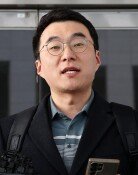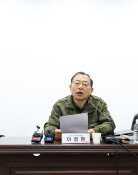“Science and Engineering Give Me Headaches“ Students Have No Interest in Technology
“Science and Engineering Give Me Headaches“ Students Have No Interest in Technology
Posted December. 03, 2001 10:25,
A third year student at K High School who is identified as J changed his major from science to liberal arts last year because it was quite difficult for him to study Math. II and Science II and to produce better scores than those who were in liberal arts at the Scholastic Aptitude Test (SAT). Only 5 classes out of a total of 15 third-year classes at K High School are science-majors. This is a reversed situation in comparison with the ratio of science-major over liberal arts-major in boy only high school that marked 8 to 2 ten or twenty years ago.
D Co, located with the Juan Industrial Complex in Incheon, manufacturing 40 percent of the total aluminum wheels of automobiles made in the nation, cannot secure skilled technical hands. It failed to hire foundry-design specialists even though they made efforts advertising the recruitment and inquiring of the organs concerned. The Research and Development Department Director of this company identified as K said, "It is because of the company`s image as one of 3-D companies that founds a metal shape at the high temperature." adding, "No one shows up at the recruitment. If anyone shows up, he or she quits immediately."
The future of `the Korea of Technology` is shaking due to lack of skilled human-power in science and engineering.
The number of students wanting to pursue the course of science is diminishing, while the industrial fields are crying out for lack of skilled hands. Companies are moving their factories and plants to China and East Asia, and excellent researchers are leaving abroad. A concern that Korea may become hollow in terms of industry is being growing.
The ration of those who apply for the course of science at SAT deceased to 27 percent in 2002 from 43 percent in 1995, a 16 percent drop in 7 years. By contrast, those who apply for liberal arts increased to 56 percent from 48 percent, and those for the performing arts and physical education courses doubled, marking a increase from 9 percent to 17 percent.
"Youngsters hate difficult and complex things and like to enter the world of entertainment or sports." said Lee Kwang-Hyung, a professor at Korea Advanced Institute of Science and Technology (KAIST). "Korean economy has grown to this level on the basis of the power of technology, but its future in 5~10 years can be in trouble."
It is also problematic that those pursuing science and technology as their career cannot be promoted to the leadership class easily because of a deep-rooted sense of hierarchical order of `Scholar-Peasant-Engineer-Merchant` paradigm. According to a survey released by the Central Personnel Committee, the number of officials of technology in the government`s central organs marks no more than 20.8 percent. In terms of the ratio of the officials of technology above the third rank, the figure falls on 6.9 percent.
Sin Yeon-Su ysshin@donga.com







